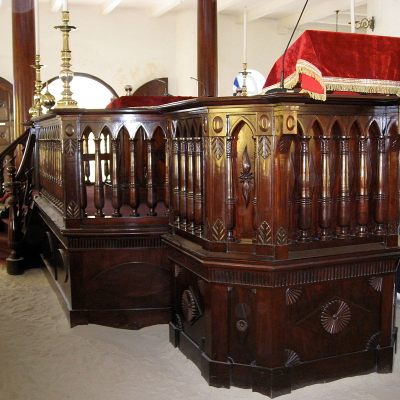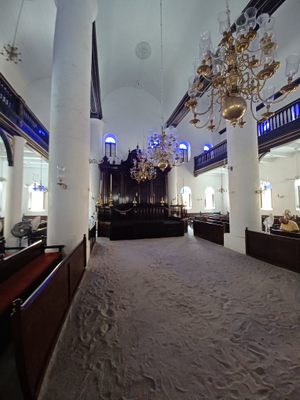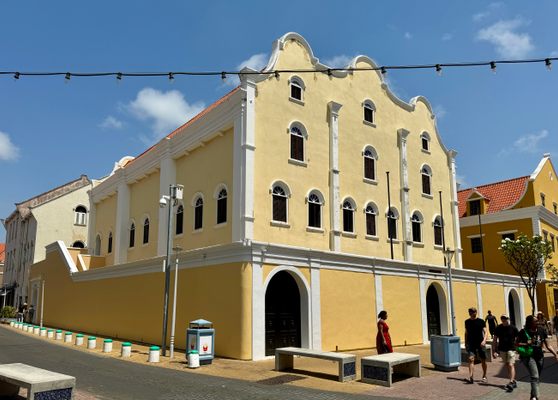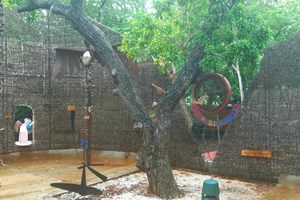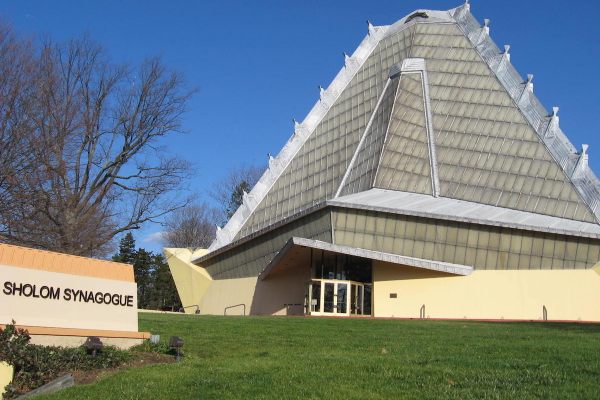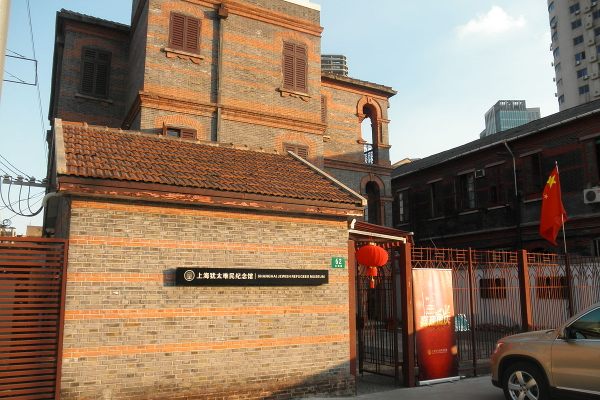About
Mikvé Israel-Emanuel Synagogue—often referred to as the Snoa, another term for synagogue—is the oldest surviving synagogue and Jewish congregation in the Americas. Those distinctions are more than enough to afford it historical significance, but it has another element that makes it unusual: the floor is covered entirely in sand.
Founded in Curaçao in 1651, the congregation’s original name translates to "The Hope of Israel." Construction of the Mikvé Israel-Emanuel Synagogue itself began in 1729 and was completed in 1732. It has been in continuous use ever since.
The synagogue is tucked into a quiet street in the Punda neighborhood of Willemstad, the historic capital city of Curaçao. Though it has an inconspicuous exterior, once you step inside, you’ll find rows of pews, towering chandeliers, and a shining mahogany bemah. As you walk around, your feet will sink softly into the floor of sand.
Spanish and Portuguese Jews from the Netherlands and Brazil were early settlers in the Caribbean islands, taking on influential roles in the local communities, and the Jewish community in Curaçao was notable among those in the New World. (The nearby Hendrickplein Jewish Temple, built in 1865, is also well worth a visit.)
The reasons for the Jewish migration to the islands and the reason for the sand floor may be related: as attempts to avoid persecution. While Jews were making their new home in the Caribbean, fears of persecution lingered. The sand floor is said to have been installed to muffle the sound of footsteps, thereby serving as a reminder of the necessary secrecy in which Jewish services were performed in the recent past. Although that is one interpretation, the actual origin of the sand floor is unknown. Nonetheless, the feature also exists among other far-flung Jewish communities. Sand-floor synagogues can be found in four other locations: Jamaica, Surinam, Saint Thomas, and Amsterdam (in the Portuguese Synagogue).
The building is in very good condition, and guests can attend the regular services. You can also visit the Jewish Cultural Historical Museum, which contains information on the island’s Jewish community and history as well as artifacts such as old scrolls and spice boxes.
The city of Willemstad, a designated UNESCO World Heritage Site, at first glance closely resembles Amsterdam, although it has a population of merely around 150,000. Curaçao, a Caribbean island just off the coast of South America, gained autonomy from the Netherlands only recently, on October 10, 2010--the first time since the arrival of the Spanish in 1499 that the islanders obtained political control of the country.
Related Tags
Community Contributors
Added By
Published
May 23, 2016
Sources
- https://www.tripadvisor.com/Attraction_Review-g147278-d150351-Reviews-or10-Mikve_Israel_Emanuel_Synagogue-Willemstad_Curacao.html#REVIEWS
- https://portwillemstad.wordpress.com/mikve-israel-emanuel-synagogue/
- http://encircleworldphotos.photoshelter.com/image/I0000bp6F8ketf7I
- https://en.wikipedia.org/wiki/Cura%C3%A7ao_synagogue

